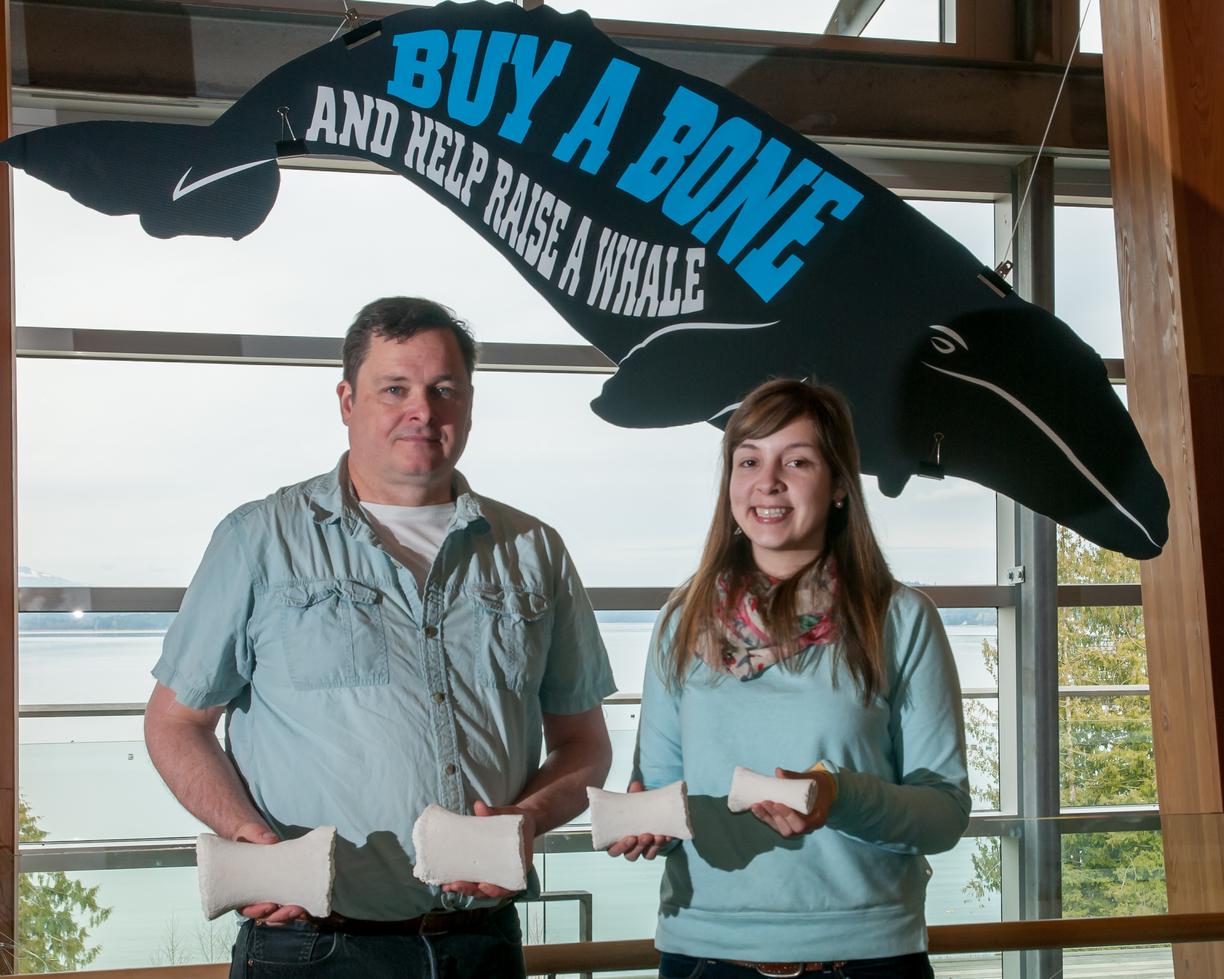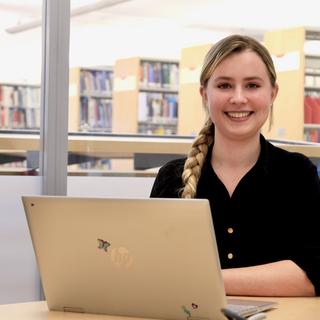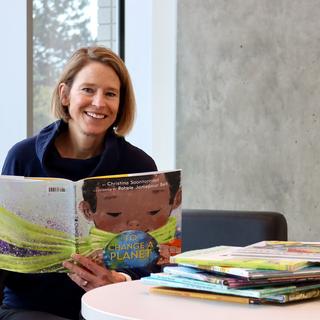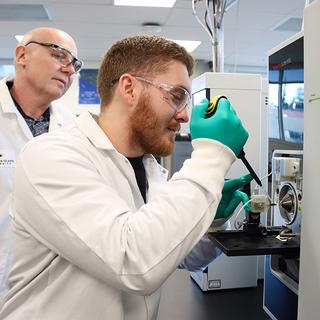Nanaimo, , BC: Vancouver Island University (VIU) is more than half way to its target of raising $75,000 to raise a Grey Whale and inspire future generations.
The University launched a ‘Buy-a-Bone to Raise a Whale’ fundraising campaign last March to create a world class Grey Whale skeleton exhibit at the Deep Bay Marine Field Station, VIU's key marine science research facility in Bowser.
"The campaign received a major boost when the Underwater Harvesters Association (UHA) became a lead donor by making a $10,000 gift to the project,” says Field Station Manager Brian Kingzett. That donation, plus the purchase of all 23 bones in the whale tail by Jamie’s Whaling Station of Tofino, pushed the campaign past the half way mark.
“We’re thrilled with how quickly the campaign has captured people’s imaginations,” adds Kingzett. “The Grey Whale project is already informing and educating people of all ages, which is exactly what the permanent exhibit is meant to do once it’s hanging from the ceiling at the Deep Bay Marine Field Station.”
“The UHA is very excited to be involved in the Raise a Whale project,” says UHA president, James Austin. “We have a long association with VIU and the Centre for Shellfish Research, funding an annual student award in the VIU Fisheries and Aquaculture program for the past 16 years and collaborating on geoduck nursery research at the Deep Bay Field Station. The Grey Whale exhibit will encourage the public to visit the Deep Bay Marine Field Station, and while they are there, learn about marine science and the work being done to support a sustainable shellfish industry in BC.”
There are still opportunities for the public to get involved with many bones available for as little as $200.
“With more support, we’re hoping to reach our fundraising goal, exhume the whale in early June and begin preparing the bones for the permanent educational exhibit,” says Kingzett.
The bones come from the remains of a 10-metre long, 20-plus tonne Grey Whale that washed up on the beach in Sooke, at the south end of Vancouver Island in April 2010. Concerned that it was being treated with disrespect, Scia'new First Nation worked with Fisheries and Oceans Canada and VIU to bury the whale on their land with hope that it could be used in the future for an educational purpose.
After four years of natural decomposition, the whale skeleton is ready to be recovered and prepared for display. Once exhumed, the bones will be taken to a laboratory inside VIU’s Deep Bay Marine Field Station where a team of consultants and volunteers will spend six months cleaning bones and preparing the exhibit.
“Visitors to the Field Station will be able to see the articulation process as it happens through glass walls in our science labs,” says Kingzett. “It’s a combination of science, engineering and art. Intensive cleaning processes are required and oils must be removed from the bones before they are assembled into a natural looking display.”
The Field Station is planning a series of seminars on topics related to the ecology of whales during July and into the fall to further support the project.
Kingzett hopes the whale exhibit will be completed by Christmas, with the 2,000 pound skeleton becoming the highlight of the Station’s public education program. He encourages the public to support the project by buying remaining bones in memory of a loved one, or to leave a legacy for future generations.
Donors will receive a certificate of "bone ownership" signed by Dr. Ralph Nilson, VIU President & Vice-Chancellor, and an invitation to the exhibit preview party. All purchases and contributions over $20 are tax deductible.
Raise a whale and inspire generations. Learn more at Deep Bay Marine Field Station.
-30-
Media Contact
Janina Stajic, Manager, Communications and Public Engagement
Vancouver Island University P: 250.740.6599 E: Communications@viu.ca Twitter: @VIUnews
About the Deep Bay Marine Field Station:
Vancouver Island University’s Deep Bay Marine Field Station is a key research facility with a mandate for public education around sustainability in coastal communities. With stunning views of Baynes Sound in Bowser, a large public aquaria teeming with sea life from BC waters and touch tanks, the Field Station is fast becoming a popular tourist destination for the Island. The Field Station, open to the public daily between 10 am and 4 pm, is also a popular venue for conferences, workshops, weddings, birthday parties, school tours and other special events.
Key facts about Grey Whales:
· Grey Whales were almost hunted to extinction.
· Today, there may be up to 23,000 Grey Whales travelling through BC waters during the spring on their annual migration.
· Each year, Grey Whales may travel as much as 22, 000 kilometres from Alaska to breed in the lagoons of Mexico.
· Grey Whales travel along the coast and feed in shallow waters bringing them in close contact with humans.
· Approximately 250 whales spend the summer around Vancouver Island every year.




